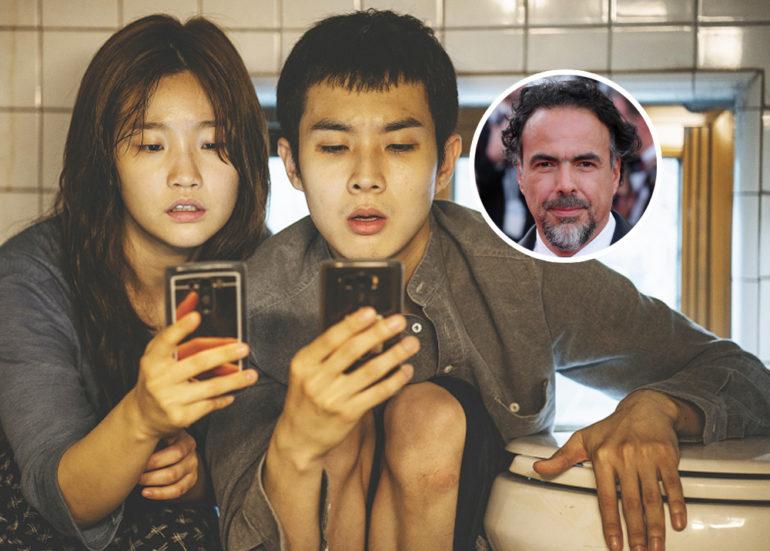Alejandro G. Iñárritu: Why Bong Joon Ho’s ‘Parasite’ ‘Speaks to All of Us’
By Alejandro G. Iñárritu
LOS ANGELES (Variety.com) – Read more from Variety’s Directors on Directors, in which filmmakers praise their favorite movies of the year, here .
“Parasite” starts as a novel of manners that relentlessly metamorphoses into a black comedy, ghost story, psychological thriller, horror movie, and ends in an unexpected but inevitable tragedy.
It was a unanimous Palme d’Or winner at the Cannes Film Festival this year and I will never forget the faces and enthusiasm of all the jury members after we had the privilege to see it being presented to the world for the first time at the Palais.
“” is a spicy genre guacamole with a social commentary that speaks to all of us. With only two sets, a rich house and a poor house, almost as a theater play, Bong Joon Ho establishes a ferocious, touching and shameful class war between two mirroring South Korean families, which represents universally one of the biggest challenges that humanity is facing now.
In “Parasite,” there are no good or bad people; heroes or villains. There are people represented by archetypal characters trapped in the cruelty of the savage capitalist system that we are all in and that is eroding and swallowing humanity. (As Witold Gombrowicz put it, if you want to know what human morality is all about, take food away from people for three days.)
Instead of preaching to us, pointing fingers, or, predictably, mass shooting oligarchs and corporate monarchs, Bong Joon Ho, sometimes using metaphors and most of the time being literal, builds an impeccable architectural dramaturgy with a sophisticated and minimalistic humor; with lightness, darkness and wit.
What I love about Bong Joon Ho’s films is that no matter the genre, he not only dominates it, but also brings something fresh to it with humanity and an honest social commentary.
But the brilliance and uniqueness of “Parasite” resides not only in the fact that it blends genres seamlessly (which is almost an impossible task for any director, and something that has become a signature in Bong Joon Ho’s work), but that each sequence, scene, camera angle and performance is incredibly precise as it takes us down to the basement, little by little, to the lowest circle of hell that resides right there, in front of our noses, but that we all refuse to see even when it’s impossible not to smell it.
The film is built on lies. Delicious ones. I found myself feeling as a co-conspirator. We don’t know if the money man is good. Or if he is good because he has money, as funnily one of the poor family members says. But the amount of pain and humiliation accumulated and buried under the floor is latent. Once the lies are uncovered, the shit comes out, literally, and we all can smell it and, believe it or not, really enjoy it.
Alejandro G.
Inarritu has won the director Oscar twice, for “Birdman” and “The Revenant.” His other films include “Amores Perros,” “Babel,” and the VR installation “Carne y Arena,” for which he won a special Oscar.

